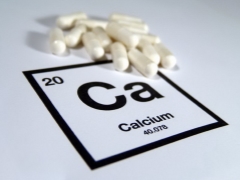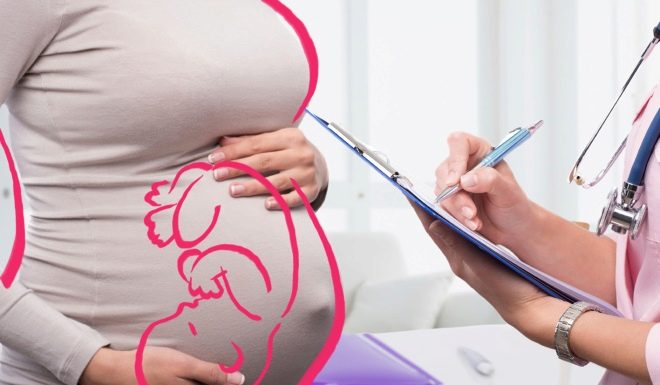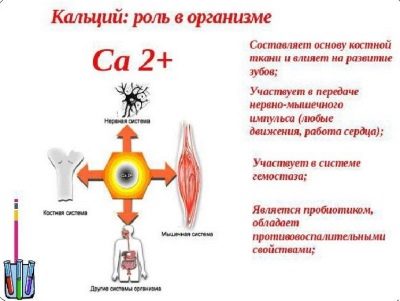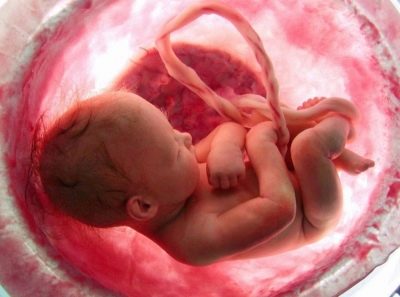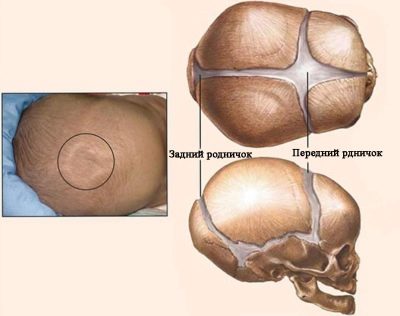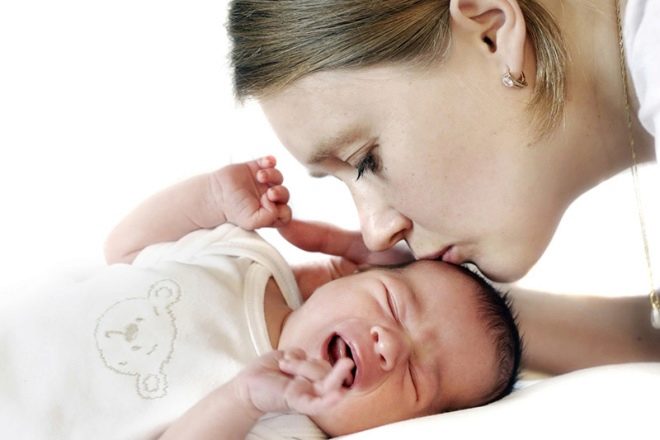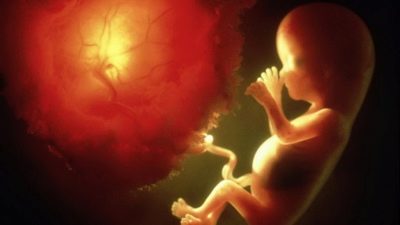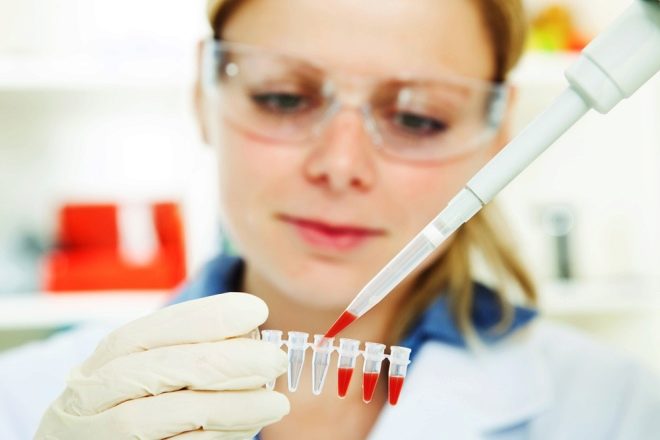Why do we need calcium for pregnant women and how it should be normal in the blood?
For the full development of the baby in the maternal tummy is very important regular intake of all trace elements and vitamins. This helps the baby to grow faster and fully develop. One of these vital substances is calcium.
What does he do in the body?
Calcium for pregnant women is one of the most important substances. It is necessary not only for the future mom's body, but also for her baby.
Calcium performs many different functions in the body. Maintaining its normal concentration is important not only in the first, but also in all subsequent periods of pregnancy.
The main function of this chemical in the body is to maintain bone density. The structure of bone formations largely depends on the initial concentration of calcium in the blood plasma.
The work of the nervous system is impossible without an optimal supply of the chemical. Term 2 is a very important period for its formation. At this time, the need for calcium in the future mother begins to grow strongly. If a woman is waiting for twins, then the daily dose of this trace element is significantly increased.
Calcium entering the body provides a very important process. He is involved in the transmission of nerve impulses.. With a decrease in its plasma concentration in a woman, various neurological disorders appear. Normal concentration prevents the development of dangerous conditions in a pregnant woman such asuterine tone and convulsive contractions of the arms and legs.
The role of calcium in ensuring blood clotting cannot be overemphasized. It is necessary so that the plasma retains its necessary fluid properties and fluidity. This provides good blood flow through the common uteroplacental blood flow system.
The optimal calcium concentration is very important in the 3rd trimester. In this final period of pregnancy, the female body is preparing for the upcoming childbirth, and therefore to a strong blood loss. Optimal blood clotting is necessary in order not to cause irreparable damage to the mother's body.
Calcium is also very important for the fetus. It is the main structural element which is required to build all the organs of the musculoskeletal system of the baby. Calcium ions are embedded in its bones, being a kind of cement.
This trace element also affects the formation of the visual and other receptor apparatus of the fetus. The expectant mother needs a normal concentration of calcium in the blood so that the baby has good intellect and memory.
Consumption rates
Normal values of calcium concentration in the blood during pregnancy are somewhat different from those used for the normal female population. This is due to the increased need for this substance during fetal development.
In the future, consume more calcium per day should be during lactation. During this period, the demand for this trace element also increases significantly.
Doctors say that the daily rate during the carrying of the baby of this substance is 1.2-1.8 grams. Calcium is absorbed into the systemic circulation in the intestines.Then, through the uteroplacental blood flow system, which is in common with the fetus, this trace element enters the baby’s body.
Scientists have found that in the first weeks of their intrauterine development, the fetus requires about 10 mg of calcium each day. By the end of the first trimester, the need for this substance increases significantly. This is due to the active growth of the baby in the maternal tummy. At this time, the daily rate of the fetus in calcium is already 0.3 grams.
Such a need stipulates that doctors may recommend to the expectant mother to use special medications. They will compensate for her calcium deficiency.
Symptoms of shortage
Calcium deficiency in the body may not manifest itself for quite a long time. Only with a significant decrease in its concentration in the blood plasma, do women experience specific changes and unpleasant sensations.
One of the most characteristic signs of a lack of calcium in the female body is development of increased tooth sensitivity. A woman begins to quickly appear caries. At the same time, tooth enamel becomes more subtle and sensitive to any chemical effects.
Also, the teeth begin to react strongly to cold temperatures. Usually this symptom manifests itself when drinking cold drinks or talking on the street in windy weather.
The decrease in calcium in the body leads to the fact that the future mom begins to tire faster. She may have decreased concentration and forgetfulness.
Many future moms with calcium deficiency complain to doctors that their hair becomes very brittle and starts to fall out. Quite often, there is a strong fragility of the nails.
On the nail plates there are characteristic longitudinal strips, indicating that the female body catastrophically needs an additional dose of calcium.
Changes in mood and emotional background are frequent symptoms, indicating a low concentration of calcium in the blood plasma. Future mothers begin to complain of excessive irritability, spontaneous mood swings, and sometimes excessive tearfulness. Some women have sleep disorders. They find it difficult to fall asleep at night.
Calcium deficiency also leads to the development of neurological disorders. They are manifested by sensations of goose bumps on the skin. Hands and feet are cold to the touch. Some women have a constant feeling of coldness. This makes them wear a lot of warm clothes or constantly wrap themselves in a blanket.
Discomfort in the pelvic region - a symptom that often develops with a decrease in the level of calcium in the blood plasma. In some cases, this symptom is manifested by a feeling of pain in the lower back. Many future moms say that they feel very sick in the pelvic bones.
Women who have calcium deficiency for too long can develop osteoporosis. This pathological condition is characterized by excessive fragility of all bone formations in the body.
This pathology is accompanied by the development of frequent pathological bone fractures. Osteoporosis is an extremely unfavorable condition during pregnancy, as it can lead to the development of congenital malformations of the musculoskeletal system in the fetus.
Tendency to develop irregular heart rhythm - Another possible manifestation of calcium metabolism in the body. In this case, the woman's heartbeat becomes irregular. She may feel "interrupted" in his work. Typically, these symptoms occur after doing any physical exertion or after severe stress.
Pathologies of blood clotting often develop in violation of calcium metabolism. A frequent clinical sign is the development of gingival bleeding.The most undesirable consequence of reducing the concentration of calcium in the blood of the expectant mother is the appearance of blood from the genital tract. In this case, urgent treatment is required.
Women with calcium deficiency in the body are also susceptible to frequent colds and respiratory diseases. In this case, the development of these pathologies leads to a decrease in the work of the immune system, which inevitably arises when calcium metabolism is impaired.
Consequences of deficiency
A significant and persistent decrease in the calcium concentration in the blood of the expectant mother often leads to the development of rickets in her baby. This condition is manifested in him after birth.
This pathology is characterized by the development of numerous anomalies and defects in the skeleton of the baby. The child's gait is disturbed, and neurological disorders may also develop.
Pathology of hematopoiesis in the fetus can also occur if, during pregnancy, the woman had a decrease in calcium in the blood plasma. Manifest such diseases tendency to increased bleeding. The risk of developing these pathologies increases many times in the presence of a genetic predisposition to their formation.
Consequences of oversupply
Excessive concentration of this trace element in the blood is also no less dangerous for the fetus. It can lead to premature closure of a large fontanel, as well as cause the appearance in the child of various pathologies of the bones of his skull. In this case, the concentration of calcium in the blood should be controlled from 30-34 weeks of pregnancy, closer to childbirth.
Too dense head bones can cause difficulties for the baby as he passes through the birth canal.
It can also cause traumatic damage to the cervical canal and uterus in the mother. It becomes quite dangerous when the fetus is too large with a narrow pelvis of a woman.
Excess calcium may be deposited in the body. "In reserve". Such formations are called calcifinates. The danger of this pathology is that they can appear in the urinary tract, leading to the development of urolithiasis. In this case, the risk of developing secondary chronic pyelonephritis increases several times.
Calcifinates can be deposited in the placenta. This pathology can lead to disruption of the nutritional status of the fetus. In this case, the nutrients necessary for growth and development simply cannot enter his body. This situation is dangerous development of multiple fetal intrauterine malformations.
How to determine?
In order to establish the concentration of calcium in the blood of a pregnant woman, she needs only to pass a biochemical analysis. Such laboratory tests are carried out both in an ordinary women's clinic and in a private laboratory. This study is usually assigned by an obstetrician-gynecologist, which controls the development and course of pregnancy of the woman.
The future mom can also do this research in a private medical clinic on her own, of her own free will.
Strict preparation for the study does not exist. On examination it is better to come on an empty stomach. This is necessary to obtain more reliable analysis results.
For the test, you need a little venous blood. The results of the analysis are ready, as a rule, within a few hours. Reference values must be indicated next to the concentration obtained. They are necessary to determine the boundaries of the normal values of this indicator.
Treatment
To compensate for calcium deficiency, you can apply a special diet. It includes products that contain a large amount of this chemical element. Such nutrition is assigned to all future mothers who are in the high-risk zone. It is especially important to consume enough foods containing calcium in multiple pregnancies.
In order to meet your daily need and your baby, the expectant mother should use 1-2 servings of food every day, which contain a sufficient amount of this substance. The main source of calcium, doctors refer sour milk. Cheese, cottage cheese, yogurt and kefir Must be included in the daily menu of a pregnant woman. They will help increase the concentration of calcium in the blood quickly enough.
This trace element is also contained in sea fish, sesame, nuts, eggs. Future mummies, practicing vegetarian food, should be very careful in applying this style of nutrition during pregnancy. The doctor will recommend a vegetarian woman to switch to a normal mixed diet for the entire period of childbearing.
If the body of the future mother can not fully digest and digest dairy products, she should enrich her diet with sesame seeds or butter. This product is a natural "record holder" for its calcium content. Intolerance to fermented milk products and cow's milk is found in lactase deficiency.
In some herbal products also contains calcium. It can be found in green beans, legumes (especially in green peas), poppy seeds, parsley and celery, various types of cabbage, and green leafy lettuce. Salad made from these plants will not only improve the functioning of the gastrointestinal tract, but also help to normalize calcium levels in blood plasma.
Scientists have found that There is a direct link between vitamin D and calcium. Both of these substances are involved in the construction of bone tissue in the children's forming body. If the concentration of vitamin D in the blood plasma is increased, then this can lead to the fact that calcium simply stops to fully digest.
The absorption of this trace element in the intestine can also be caused by the consumption of sugary carbonated drinks, large amounts of tea or coffee, muffins and pasta, as well as too-fat dairy products. Smoking and drinking also lead to a decrease in calcium concentration in the blood.
If, against the background of diet therapy, the general condition of the woman has not improved, then in this case, the doctors will recommend her to take medication. They are enriched with calcium and necessary to compensate for deficient states.
Currently, there are several forms of these drugs. In their chemical composition, they contain different calcium salts. In carbonate, the concentration of this element, as a rule, is 40%. Citrate in its chemical structure already contains only 20-25% calcium. In the lactate of this substance is even less - 13%.
Such a chemical structure explains why it is better to use mainly calcium carbonates or citrates for treatment. A very important criterion before the appointment of these funds - how well they are absorbed from the gastrointestinal tract.
Pharmacologists believe that citrates more quickly pass into the systemic circulation from the intestines. Also, after taking these drugs in plasma, the peak of calcium concentration is quickly reached.
One more indisputable advantage can be considered that calcium citrates can be prescribed to expectant mothers suffering from urinary tract diseases. Such funds contribute to the shift of urine pH to a more alkaline side, which does not lead to the appearance of various stones in the kidneys and ureters.
Long-term use of calcium carbonate can lead to a decrease in gastric secretion. It also contributes to the occurrence of unpleasant symptoms in a pregnant woman, such as severe gas, soreness in the abdomen, and frequent constipation.
In order to reduce the severity of the manifestation of these clinical signs, these drugs should be taken along with acidic juices. Perfectly suited drinks made from citrus or made from green apples.
For better absorption of calcium, doctors may recommend expectant mothers to use drugs that contain both vitamin D and calcium. Such complex means provide good absorption and have a minimum of side effects. These drugs include: "Vitrum-calcium - D3", "Calcium - D3-Nicomed", "Calcemin" other.
Usually taking such funds does not cause any adverse symptoms in the expectant mother. However, some women may still develop constipation, nausea, or decreased appetite.
While taking the drugs should not exceed a single dose of calcium. It is important to remember: only 0.5 grams of this substance can be absorbed once. Large dosages taken at one time will simply be eliminated from the body without any benefit.
This dose dependence explains the fact that calcium supplements should be taken in small doses throughout the day. This will saturate the body without harm to the health of the mother and her baby.
About why calcium is needed pregnant, see the following video.
